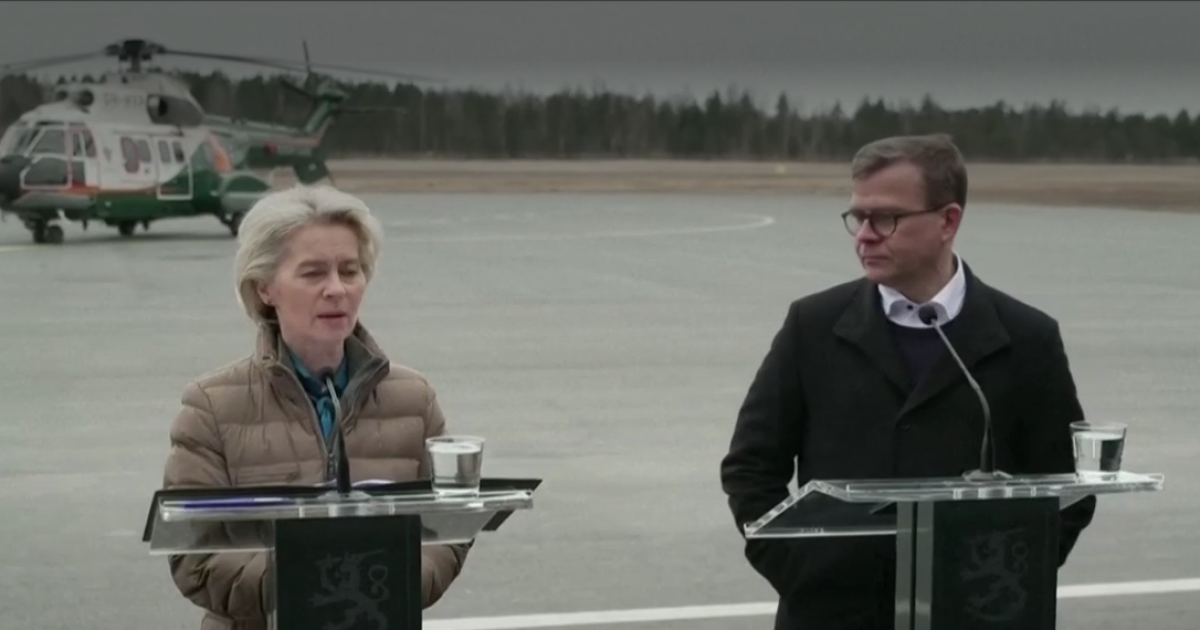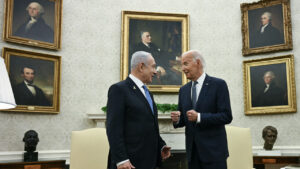
World leaders called for calm this Friday, April 19, 2024, after Israeli retaliation against Iran will add to months of tense consequences of the war in Gaza, and Iranian state media reported explosions in a central province.
Israeli officials made no public comment on the attack and Iranian officials downplayed it.
But the specter of direct hostilities between the Middle East’s archenemies shook world markets and Oil, gold and stock prices fluctuated throughout the day.
A senior US congressional source told AFP there had been Israeli strikes in retaliation, but he refused to give further details, stating that they were classified.
Iranian Foreign Minister Hossein Amir-Abdollahian said the Israeli microdrones used in the operation had caused no deaths or damage, ruling it out as a “desperate attempt to extract a victory from their repeated defeats.”
Israel had warned it would respond after Iran fired hundreds of missiles and drones at it almost a week ago, in retaliation for a deadly April 1 airstrike – widely attributed to Israel – that destroyed the Iranian consulate in Damascus and killed seven revolutionaries.
They activated their defenses
Air defense systems in several cities were activated, official media reported, after state television said explosions were heard near Iran’s third city, Isfahan.
An unnamed Israeli official told the Washington Post that the “attack” was retaliation for Iran’s drone and missile bombing and was intended to indicate that Israel could attack inside Iran.
The Iranian news agency Tasnim, citing “informed sources”, He denied that Iran had been attacked from outside.
“Contrary to rumors and claims” by foreign media, “there is no news of an attack from abroad,” Tasnim said.
Three Iranian officials told the New York Times that small drones carried out the “strike,” possibly launched from inside Iran, and that The radar had not detected unidentified aircraft entering Iranian airspace.
The Fars news agency reported “three explosions” near Qahjavarestan, near Isfahan airport and the 8th Shekari army air base.
The spokesman for the Iranian space agency, Hossein Dalirian, stated that there were “a failed and humiliating attempt to fly quadcopters, which were shot down.”
“There were no reports of a missile attack,” Dalirian said on social media platform X.
“Reports indicate that “There was no major damage or major explosion caused by the impact of any air threat.”said the official IRNA news agency.
Intact nuclear facilities
The commander-in-chief of the Iranian Army, Abdolrahim Mousavi, attributed Friday’s explosions to “firing of anti-aircraft defense systems against a suspicious object.” He said “there was no damage,” according to Tasnim.
The nuclear facilities in Isfahan were reported to be “completely safe”Tasnim said, and the U.N. atomic watchdog confirmed there was “no damage” to Iran’s nuclear sites.
Washington received advance warning of Israel’s attack, but did not support it or participate in its execution, officials cited by US media said.
President Joe Biden had promised “strong” support for Israel, but also urged it to “think carefully and strategically” before launching a response against Iran that could trigger a broader war.
Dangerous cycle of retaliation
Last weekend, Iran launched its first attack aimed directly at Israel. With the help of the United States and other allies, Israel intercepted most of the more than 300 missiles and drones that Israel said Iran had launched. Minor damage occurred and there were no deaths.
Iran said its intervention was in retaliation for the April 1 attack on its consulate in Damascus that He killed seven Revolutionary Guards, two of them generals.
Israeli Prime Minister Benjamin Netanyahu has been under international pressure over the number of civilian casualties in the Gaza war, and one analyst said the attack on the consulate allowed Israel to divert attention from Gaza. However, the group’s foreign ministers G7 of developed economies, meeting in Italy on Friday, maintained that pressure.
The group said they opposed a “large-scale military operation in Rafah”, where most of Gaza’s population takes refuge, because it would have “catastrophic consequences” for civilians.
In parallel with the Gaza war, violence involving Iranian-backed groups has skyrocketed in the Middle East. UN chief Antonio Guterres called for an end to the “dangerous cycle of retaliation”, his spokesperson said.
Space to get off
Analysts said a spiral of violence could still be avoided, as long as Iran continues to downplay the reported Israeli attack and Israel takes no further action.
Dr. Sanam Vakil, director of the Middle East and North Africa program at Britain’s Chatham House think tank, said the reported attack had been “calibrated to prevent damage and further Iranian aggression.”
“As long as Iran continues to deny the attack and divert attention from it and no further attacks are seen, there is room for both sides to move down the escalation ladder for now,” he said.
Nomi Bar Yaacov, an associate member of the think tank’s international security program, said the attack had been “carried out in a way that will allow Iran to deny the attack and draw a line under it.”
On the streets of Tehran, some called for peace. “We are against war,” said Behrouz, 71, a retired firefighter who did not give his last name. “We are not happy with the killing of people, whether they are Iranians, Israelis or Gazans.”
In Jerusalem, some called for tougher measures against Iran. “I think they have to attack very hard, not like this,” said antiques dealer Amitay Bendavid.
China, Iran’s largest trading partner, said on Friday that “will continue to play a constructive role in reducing” tensions in the Middle East.
Source: https://www.noticiascaracol.com/mundo/lideres-mundiales-llaman-a-la-calma-tras-represalias-israelies-contra-iran-que-afectan-a-gaza-cb20


